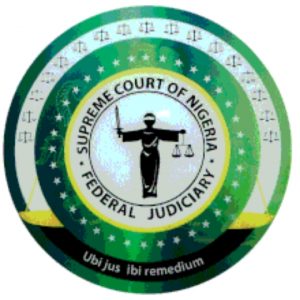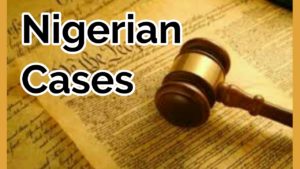Obafemi Awolowo V Shagari: Election petitions are a usual phenomenon after an election in Nigeria. It is the means of instituting an action in court with regards to the conduct of the election and to obtain a remedy for the aggrieved candidate.
The Court which has jurisdiction to hear the petition depends on statutory provisions. Statutory provisions also determine the number of votes necessary for a winner to emerge in any given election.
In the case of Obafemi Awolowo v. Shehu Shagari, a question was brought before an Election Tribunal to determine whether or not statutory requirements were met in a conducted election and whether a candidate was validly declared the winner of the election.

Recommended: Best countries to practice law in the world
Fact summary of Obafemi Awolowo v Shehu Shagari
After the Military Government decided to return the Country to civilian rule, elections were conducted to that effect. This election was conducted to fill in.

A Presidential election was conducted on the 11th of August 1979. There were five candidates who contested the office of the President and they include: Dr. Nnamdi Azikiwe, Alhaji Ibrahim Waziri, Alhaji Aminu Kano, Alhaji Shehu Shagari and Chief Obafemi Awolowo.
After the election, Alhaji Shehu Shagari was declared the winner of the Presidential election as he had satisfied the provision of Section 34A(1)(c)(ii) of the Electoral Decree of 1977.
Chief Obafemi Awolowo challenged the declaration made, that Shehu Shagari was the winner of the 1979 Presidential election.
Obafemi Awolowo contended that the provision of Section 34A(1)(c)(ii) of the Electoral Decree of 1977 had not been met in the election.
The section provides that for a party to be declared winner of an election he has to have a majority of the votes cast and not less than one fourth or one-quarter of the votes in two thirds of the States in the Federation.
Thus, he brought an election petition to the Presidential Election Tribunal in Lagos, claiming that the election of the 1st respondent as President was invalid. There was non-compliance with Part II of the provisions of the Electoral Act which included the provisions of Section 34(1)(c)(ii).
The appellant’s argument was that, although the respondent had won the majority of the votes in the election, he had failed to satisfy the requirement of one-quarter votes in not less than two-thirds States of the Federation.
The appellant sought the court to invalidate the election and return of the 1st respondent and cause for a new election to be conducted in accordance with the provisions of Section 34A(3) of the Electoral (Amendment) Decree (Decree 32 ) of 1979.
The appellant brought a witness before the Tribunal as evidence – a Professor of Engineering and an applied Mathematician- who claimed that one could not determine a two-thirds majority in Kano without the use of a computer and brought an analysis of the votes cast and results declared.
Also see: How to answer law essay and problem questions perfectly
Issues Determined in Obafemi Awolowo v Shehu Shagari
a. Whether the provision of Section 34A(1)(C)(ii) of the Electoral Decree of 1977 had been satisfied in the Elections.
b. Whether the 1st respondent had been validly declared winner of the 1979 election.
Also see: Facts, Issues and Judgment of Court In AG Bendel State V AG Federation
Decision of the court in Obafemi Awolowo v Shehu Shagari
The petition was dismissed by the Election Tribunal.
The appellant, aggrieved by the decision of the Tribunal, appealed to the Supreme Court.
The appellant sought the Supreme Court to interpret and apply the provisions of Section 34(1)(c)(ii) of the Electoral Act of 1977. His major ground for appeal was that the Election Tribunal had misinterpreted the above provisions and had ruled wrongly on them. It had misdirected itself in law in the following ways: by interpreting two-thirds majority of 19 states as 12 and not as 13; by interpreting that two-thirds States meant two-thirds of the votes of each State and not two-thirds States of the Federation; and by miscalculating the two-thirds votes cast for the 1st respondent in the State of Kano.

The Supreme Court stated that it must first be considered that the particular statute was passed under special circumstances.
It held that the primary concern of the Returning Officer should be the number of votes cast in each of the 19 States. It is through that method that the total number of votes cast in the country can be determined.
The Returning Officer must then determine what constitutes two-thirds majority of the 19 States, and where the statutory provision is capable of more than one meaning, the interpreter has a discretion to choose one of these meanings, but can go no further.
It stated that where in interpreting a provision, there is doubt that the legislature intended a wide view to be taken, so much so that fundamental principles will be disregarded, the court can adopt a view that is narrow.
It held that FEDECO was right in its determination of the winner and it had satisfied the provisions of the Electoral Decree.
It held that the provisions of Section 34 talks of the number of votes and thus, the allegation that there had been fractionalization of the States, by interpreting two-thirds of 19 as 12, was fallacious.
Until Election returns can be computerized, the suggestions made by the Professor of Engineering are impracticable.
It finally held that even though it had been found that there was non-compliance with the provisions of Section 34A(1)(c)(ii) of the Decree, the provision of Section III subsection 1 will be evoked, which provides that non-compliance with part II will not affect the result of the election.
The appeal was dismissed by the Supreme Court. A dissenting judgement was given by Eso JSC.
Recommended: How to sue someone in a different country
Conclusively, the Election Tribunal was set up for the purpose of determining allegations of invalid election returns or election malpractices, brought by aggrieved parties. The Supreme Court is the Court of final resort in the determination of Presidential Election Petitions and its decisions cannot be appealed.
Where there is need to determine what constitutes the number of votes to emerge a successful candidate in an election, it is within the powers of the courts to adopt the rules of interpretation to construct statutory provisions in a way that would best represent the intentions of the legislature.

Edeh Samuel Chukwuemeka, ACMC, is a lawyer and a certified mediator/conciliator in Nigeria. He is also a developer with knowledge in various programming languages. Samuel is determined to leverage his skills in technology, SEO, and legal practice to revolutionize the legal profession worldwide by creating web and mobile applications that simplify legal research. Sam is also passionate about educating and providing valuable information to people.
Very helpful
To this extent and on many more occasions the suprene court have given valid interpretations on statuary enactments.
Very helpful
To the extent that rhe exercise of interpretations by the Supreme Court becomes the law through which the existing statute applies.
Noteable in other insatnaces where the Dictum of the courts seem to be Celebrated